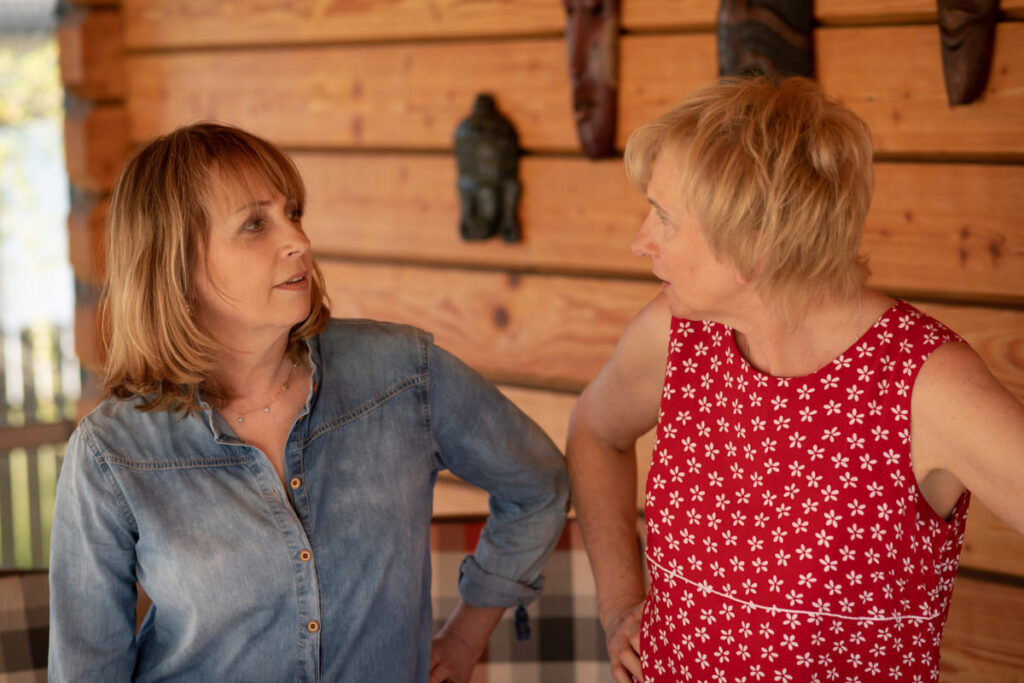15 Warning Signs Your Friend Might Actually Be Your Enemy And How To Protect Yourself
Friendships can be complicated, and sometimes the people you trust most aren’t as supportive as you hope. Maybe you’ve noticed odd behavior or felt uneasy but brushed it off.
It’s easy to ignore small red flags because you want to believe the best in your friends. But learning to spot the signs of a toxic friendship can help you protect yourself and your happiness.
They disappear when you celebrate your success

You share exciting news, and suddenly your friend is hard to reach. They stop replying or avoid any celebration.
Instead of joining in your joy, they change the subject or act distant. It leaves you feeling unsupported right when you want to share your happiness.
They often give backhanded compliments

Your friend gives compliments that sting, like “You look good for once.” The words sound nice, but there’s a hidden jab.
These remarks can leave you feeling unsure or hurt. It’s as if they want to keep you from feeling too confident.
Pay attention to how these comments make you feel. If compliments usually come with a side of criticism, it’s worth reconsidering the friendship.
They spread gossip about you behind your back

You confide in your friend, then hear your personal details from someone else. It’s a clear sign your trust has been broken.
A friend who gossips about others to you is likely talking about you, too. This pattern shows they don’t respect privacy or loyalty.
They compete with you rather than support you

Every time you share good news, your friend tries to one-up you. It feels more like a contest than a friendship.
They compare their achievements to yours, big or small. Instead of cheering you on, they focus on being better.
They make you feel drained after interactions

You leave hangouts feeling exhausted or down. Instead of feeling uplifted, you’re left drained.
Conversations revolve around their problems or needs, with little room for yours. It’s hard to look forward to spending time together.
They ignore your struggles but expect your help

You’re always there for them, but when you need support, they’re missing. It stings when your problems are brushed aside.
They still expect you to drop everything for them. This one-sided dynamic can wear you out.
They frequently criticize under the guise of advice

Advice from your friend often feels more like criticism. Instead of encouragement, you get judged or put down.
Comments like “You should do better” come without real help. It chips away at your confidence rather than building you up.
They take credit for your ideas or achievements

Your friend brags about things you suggested, making it seem like their own. It can be frustrating to see your work overlooked.
They might act like they played a big part in your success, even if they barely helped. This steals your spotlight and leaves you feeling unappreciated.
They subtly undermine your confidence

Small jokes or comments from your friend make you question your abilities. Over time, these remarks add up.
When you bring it up, they accuse you of being too sensitive. This can make you doubt your feelings and lose trust in yourself.
They show jealousy over your accomplishments

Your achievements are met with downplayed reactions or backhanded compliments. Instead of celebrating, they seem uncomfortable or dismissive.
They might change the subject or act distracted when you share good news. It’s clear they aren’t happy for you.
They refuse to apologize or admit fault

Your friend never says sorry, even when they’ve clearly hurt you. They act like they’re always the victim.
Blame gets shifted to you or others, and they avoid taking responsibility. This makes it hard to trust or resolve problems.
They gossip about your secrets with others

Private things you share end up as gossip. It’s painful to realize your friend doesn’t value your trust.
They might also gossip about others to you, showing a pattern. This can make you feel betrayed and wary.
They change their opinion about you to suit the crowd

When you’re alone, they act friendly, but in groups, their attitude shifts. They might say things that contradict what they’ve told you before.
It’s confusing to see them act differently just to fit in. This shows they care more about approval than your friendship.
They manipulate situations to their advantage

Your friend twists stories to make themselves look better. They might try to control what you do while pretending to help.
If you disagree, they make you feel like you’re the problem. It’s a subtle way of making you doubt yourself.
They avoid helping you when you truly need it

When you need support, your friend is nowhere to be found. Excuses pile up, and your struggles are ignored.
You start to feel like you can’t count on them. This distance can leave you feeling alone during tough times.
Understanding Toxic Friendships

Toxic friendships often creep in quietly, leaving you confused and second-guessing yourself. Behaviors that seem harmless at first can slowly erode your confidence and happiness.
Sometimes, these actions are rooted in jealousy or insecurity. Your friend might compete with you or use subtle criticism to keep you from feeling good about yourself.
It’s easy to overlook these signs, especially if you want to believe your friend has your back. But trusting your instincts and setting boundaries can help you protect your well-being.
The Psychological Impact of Hidden Enemies

Ever had a friend who leaves you feeling on edge or second-guessing yourself? Their mixed signals and constant criticism can make you question your own judgment.
It’s tough when someone close to you makes you feel lonely even in their company. The effort to keep the peace can slowly chip away at your confidence.
That stress can build up, leaving you emotionally worn out. It’s important to notice these signs before things get worse.
How to Respond to a Toxic Friend

Dealing with a toxic friend is never easy, but there are ways to protect your peace of mind. Sometimes, it means having tough conversations or even stepping back for your own well-being.
Setting Healthy Boundaries

Think about what you’re comfortable with and what crosses the line for you. Maybe you need to say no to certain things or let your friend know when something bothers you.
It’s okay to take a moment before responding if you feel uneasy. Short, honest messages can help, like saying you don’t appreciate a certain comment.
Boundaries are about caring for yourself. If your friend respects them, it’s a positive sign. If not, it might be time to reconsider how much space they have in your life.
Moving Forward After Ending a Toxic Relationship

Letting go of a toxic friendship is never easy. If you decide to end things, do it respectfully but stay firm in your decision.
You might say something like “I need to focus on people who support me.” There is no need to get into long explanations.
Afterward, give yourself permission to focus on your own happiness. Spend time with friends who make you feel good about yourself.
Trying out new activities can help boost your confidence. It is completely normal to feel a mix of emotions during this time.
Let yourself feel sad or angry. Remind yourself that this step was important for your well-being.







